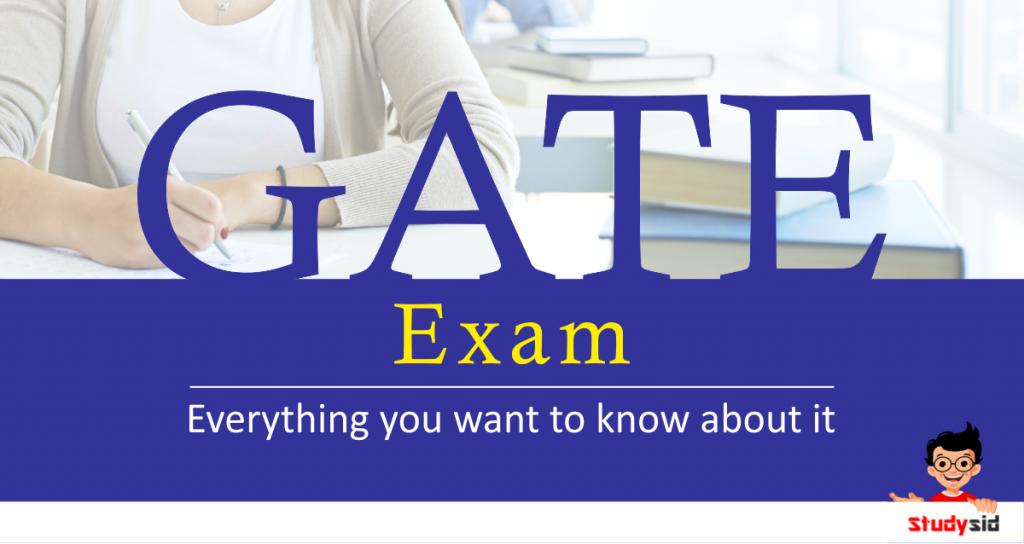Candidates eyeing GATE 2020 must start their preparation. Here’s a list of some of the best GATE 2020 books for the exam.
GATE 2020 Books –
This article is intended to tackle the most burning question of GATE exam 2020 that is what books are to be referred for GATE exam. First of all, let’s get one thing straight i.e. one book or 10 books, nothing is sufficient for GATE exam preparation. It all depends on the student’s learning capability i.e. how much one can learn from each question and each book. If you are able to quickly learn concepts then you can cover the same course from a lesser number of books but if you are a slow learner then you need to go through multiple books. So even one book can be sufficient and 10 books are not really required.
So here’s a list of best books for GATE 2020:
GATE Books for Engineering Mathematics
For clarifying the concepts you can refer to Advanced Engineering Mathematics by E.Kreyszig. It provides a detailed study of all the topics in sufficient enough detail but kindly study this book with the GATE curriculum alongside you so that you don’t get lost in the vastness of this book.
The best way to prepare for Engineering Maths is by the use of Kreatryx Engineering Maths book available on Amazon which will cover all the concepts in sufficient detail along with a lot of unsolved problems for practice.
GATE Books for Network Analysis
For detail study purpose please refer to Engineering Circuit Analysis by Hayt and Kemmerly. For practising problems in Network Analysis you can refer to Circuit Theory by AK Chakraborty.
GATE Books for Signals and Systems
For this, you can follow Signals and Systems by Oppenheim and Wilsky. But if the language of this book seems difficult to understand then you can also refer Signals and Systems book by BP Lathi.
GATE Books for Electrical Machines
For basic concepts please go through the Electrical Machinery by P.S.Bimbhra. Also, solve all the solved and unsolved exercises in this book as they are pretty much based on GATE exam pattern.
GATE Books for Power Systems
Keep this book for Power Systems Engineering by Nagrath and Kothari. This book is concise and to the point and if you need further clarification on any topic then you can refer to Power Systems by CL Wadhwa.
GATE Books for Power Electronics
Please refer to Power Electronics by P.S.Bimbhra. This book is mostly based on numerical solving techniques in Power Electronics. If you need any detailed explanation on any topic then you can follow the Power Electronics book by Rashid.
GATE Books for Control Systems
You can refer to Control Systems Engineering by Nagrath and Gopal as it gives all concepts in sufficient enough details for GATE. But if you need any reference for more details on any topic then you can refer Automatic Control Systems book by BC Kuo.
GATE Books for Electrical Measurement and Instrumentation
You can refer to Electrical and Electronic Measurement and Instrumentation by AK Sawhney. This book is very vast so do make sure that you have a handy list of all the topics required else you may end up studying unnecessary topics.
GATE Books for Analog and Digital Electronics
To study the Analog Electronics, you can refer to Electronic Devices and Circuit Theory by Boylestad. If you need more details on any topics then you can also refer Electronic Circuits by Donald Neamen.
For Digital Electronics, you can go through the Digital Design by M.Morris Mano. If the topics do not seem to be understood then you can also refer to Digital Circuits by Anand Kumar.
GATE Books for General Aptitude
You can refer Kreatryx Numerical and Verbal Aptitude for GATE / ESE / PSU / SSC / Bank PO and all other competitive Exams.
GATE exam is mostly based on upon application of concepts and not mugging up the definitions and concepts directly from the book. So focus must be on problem-solving rather than just mugging up the concepts. So while referring any book make sure that you are using it the right way to polish your problem-solving skills.


